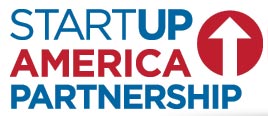What makes marketing so crucial when running a business? In most cases, it’s recommended to tackle marketing before just about everything else. Still, it might not be apparent to some entrepreneurs why marketing is vital. The fact of the matter is that without marketing, most companies are dead in the water. There’s little to no chance of getting the attention of the target demographic, as even the best products and services won’t matter if no one knows the business exists.
Such is the reason why marketing – digital marketing in particular – is so crucial for the starry-eyed entrepreneur. Without a strong marketing campaign, it’s likely that your business ends up neglected by your demographic in favor of the more visible competition.
It can be frustrating to try to tackle the problem on your own, especially when your competition is making partnerships with some of the best marketing agencies out there. Therefore, it’s vital to learn the ins and outs of marketing to ensure that you make the most out of all the opportunities presented as you maneuver your company through the industry landscape.
Treat Your Website as a Marketing Tool
One of the first things to consider on the road to marketing success is the idea that your primary website is the last line of defense when it comes to keeping the attention of your prospective clients. While a good marketing campaign will have people clicking on your adverts, keep in mind that it’s still your website that determines whether they stay and make a purchase.
If the website is not properly optimized, it will likely result in a high abandonment rate. A few things to consider regarding web optimization includes:
● Loading times. Quick loading times will almost always translate to online users giving your website a chance. Most people only give upwards to ten seconds for a website to catch their attention. If a good five seconds are spent waiting for the site to load, they’ll likely exit the tab and look elsewhere.
● Accessibility. An accessible website can help open the door to plenty of new opportunities. For example, translation services for video content could help you grow a new demographic abroad. Closed captions will make it much easier for those with hearing problems to follow your content. Additionally, something as simple as a font size changer on your website can mean a lot for those with vision problems.
● Ease of use. Developing a website for marketing is as easy as making it simple for online users to get to the checkout page. Ensure that your website is easy to navigate with a minimalist template.
Your primary website is the last line of marketing defense, which means it’s up to you to develop a robust strategy to keep the attention of online users once you’ve turned their heads.
Make a push for search engine optimization (SEO)
What makes digital marketing such an integral part of business management is that it can be surprisingly easy and affordable to get your start. All you need is a robust SEO marketing agency to help make the push toward marketing success. A link-building agency is necessary to ensure that your company spreads the word far and wide, and agencies such as Ocere can offer you the opportunities you need.
Develop Your Company’s Personality Online
Another crucial part of marketing involves building your company’s personality with the help of social media platforms. Staying active in such platforms gives eager entrepreneurs the chance to interact with potential customers and even offers a convenient hub for feedback. How your company responds to feedback will determine how your demographic views your business.
Aside from the various tips above, it’s all about learning from your chosen marketing agencies. The professionals can teach you the best-practice methods you need to make a difference and develop a sound marketing strategy. After all, it would be a wasted opportunity to let the professionals do all the work when you have just as many opportunities to improve your company’s reputation.


















 "In addition, we plan to stay active within open source communities and are proud of what we’ve contributed in the past,"
"In addition, we plan to stay active within open source communities and are proud of what we’ve contributed in the past,"